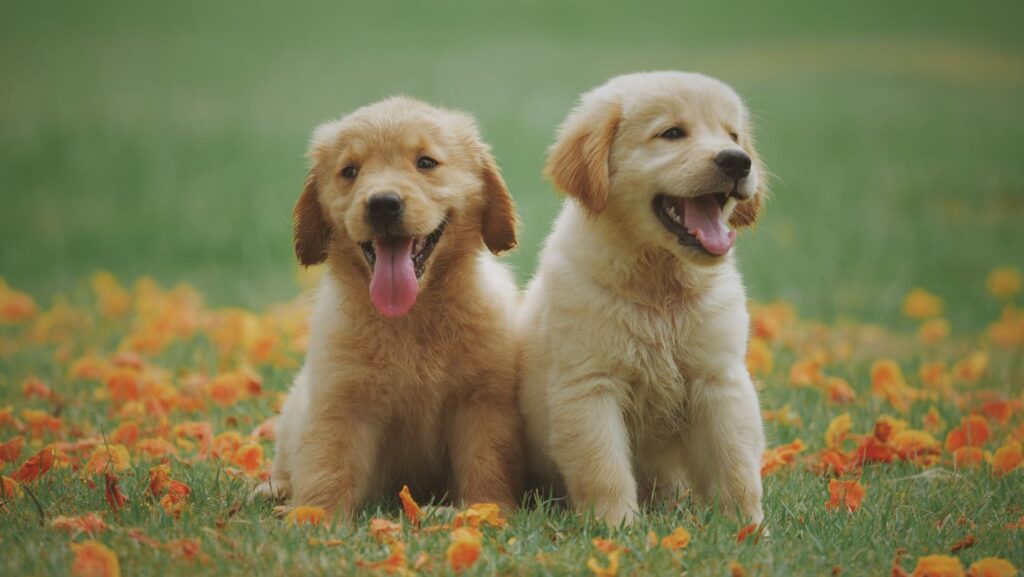Puppies, the young and often irresistibly cute companions, capture hearts with their playful antics and boundless energy. As they grow, these little bundles of joy require specific care and attention to ensure they develop into healthy, well-adjusted adult dogs. Understanding the unique needs of puppies is crucial for any pet owner, from their dietary requirements to their socialization and training needs. That’s where early career development programs come into play.
The Rise of Unusual Puppy Breeds
The diversity of puppy breeds has expanded significantly, introducing pet owners and money handling to rare and unique breeds. This section explores these unusual puppy breeds, examining their characteristics and the reasons behind their growing popularity.
Characteristics of Puppy Dogs
 Unusual puppy breeds often exhibit distinctive physical traits and behavioral quiritives. For example, the Xoloitzcuintli, or Mexican Hairless Dog, is known for its lack of fur and affinity for warm environments. Breeds such as the Lagotto Romagnolo, hailing from Italy, are revered for their truffle-hunting skills and curly, hypoallergenic coats. Additionally, the Goldendoodle, a mix between a Golden Retriever and a Poodle, is celebrated for its friendly nature and low-shedding coat, making it an excellent choice for families and allergy sufferers. With the increasing popularity of Goldendoodles, many options for goldendoodles for sale have emerged, providing prospective owners with various choices. These breeds not only offer unique appearances but also cater to specific lifestyles and preferences that traditional breeds might not serve.
Unusual puppy breeds often exhibit distinctive physical traits and behavioral quiritives. For example, the Xoloitzcuintli, or Mexican Hairless Dog, is known for its lack of fur and affinity for warm environments. Breeds such as the Lagotto Romagnolo, hailing from Italy, are revered for their truffle-hunting skills and curly, hypoallergenic coats. Additionally, the Goldendoodle, a mix between a Golden Retriever and a Poodle, is celebrated for its friendly nature and low-shedding coat, making it an excellent choice for families and allergy sufferers. With the increasing popularity of Goldendoodles, many options for goldendoodles for sale have emerged, providing prospective owners with various choices. These breeds not only offer unique appearances but also cater to specific lifestyles and preferences that traditional breeds might not serve.
Health and Wellness for Modern Puppy Breeds
Common Health Issues
Many modern breeds display a propensity toward genetic health problems that potential owners need to be aware of. For instance, the brachycephalic breeds such as French Bulldogs often suffer from respiratory issues due to their short snouts. Likewise, larger breeds like the Bernese Mountain Dog may experience joint issues, including hip dysplasia. Regular screenings and early diagnosis play crucial roles in managing these conditions effectively.
Best Practices for Care
 Maintaining the health of modern puppy breeds involves several best practices that ensure their well-being:
Maintaining the health of modern puppy breeds involves several best practices that ensure their well-being:
-
Routine Veterinary Visits: Regular check-ups help catch health issues early before they develop into more severe problems.
-
Appropriate Diet: Feeding puppies a balanced diet suitable for their specific breed size and age supports overall health and growth.
-
Regular Exercise: Exercise helps prevent obesity, which is linked to numerous health issues, and also stimulates their mental health.
-
Socialization and Training: Early socialization and consistent training help puppies adapt well to various environments, reducing stress and anxiety.
-
Preventive Measures: Up-to-date vaccinations and regular parasite control keep numerous diseases at bay.
Training and Socializing Unique Puppy Breeds
Effective Training Techniques
 Training unique puppy breeds involves consistency, patience, and understanding their specific traits. Positive reinforcement stands out as a successful method. This approach encourages puppies by rewarding good behavior with treats, praise, or playtime, thereby reinforcing that behavior.
Training unique puppy breeds involves consistency, patience, and understanding their specific traits. Positive reinforcement stands out as a successful method. This approach encourages puppies by rewarding good behavior with treats, praise, or playtime, thereby reinforcing that behavior.
-
Start Early: Begin training as soon as a puppy comes home, which is usually around eight weeks old.
-
Keep Sessions Short: Puppies have short attention spans. Training sessions should last between 5 to 10 minutes to maintain their focus.
-
Use Clear Commands: Opt for simple and consistent commands. Puppies respond better to concise cues such as “sit”, “stay”, or “come”.
-
Gradual Complexity Increase: Initially teach basic commands, and progressively introduce more complex tasks as the puppy masters each level.
Adapting training sessions to each breed’s characteristics can tremendously improve their effectiveness. For instance, highly intelligent breeds like the Lagotto Romagnolo may require more mentally stimulating activities to prevent boredom.
Socialization Tips
 Socialization is crucial, particularly for puppies from unique breeds, as it helps prevent behavioral issues later in life. Effective socialization introduces puppies to a variety of people, environments, and other animals in a controlled manner.
Socialization is crucial, particularly for puppies from unique breeds, as it helps prevent behavioral issues later in life. Effective socialization introduces puppies to a variety of people, environments, and other animals in a controlled manner.
-
Introduce New People Regularly: Allowing puppies to meet new people helps them become comfortable with human interactions.
-
Visit Different Environments: Take puppies to various places such as parks, pet stores, and outdoor events to expose them to different scenarios.
-
Enroll in Puppy Classes: Puppy classes offer a safe space for puppies to interact and play, which is essential for their social development.
-
Controlled Exposure to Other Animals: Gradually introduce puppies to other dogs and cats to teach them proper social behavior.
By integrating these socialization practices, owners of unique puppy breeds can ensure their pets grow into sociable and well-mannered dogs. Each interaction plays a significant role in shaping the puppy’s behavior and adjustment to new experiences.
